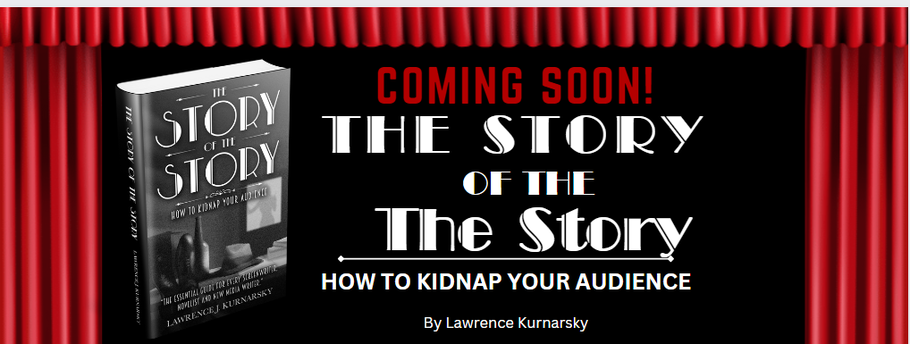|
INTRO: WHY YOU
SHOULD READ THIS BOOK
'No good fish goes anywhere without a porpoise.' Lewis Carroll. Why do you need to read this book? Because this book provides insight most others do not. They mostly function as how-to manuals, which is not enough. You have as much chance of telling a great story just by reading a manual, as you do of flying a jumbo jet, just by reading its manual. This book hones in on the ‘why’ of storytelling. It does function as a how-to manual, but it is more concerned with ‘purpose’. Another term for the purpose of a tale is its theme. Theme is where a story gains a soul. Theme is why a need telling. It’s the only justification. You need to understand that, or you will write yourself into a dead end. Quite simply, if a need telling, there is reason, there is a purpose, there is a theme, or a number of related themes. There will be an internal logic that emerges out of that understanding. Once you comprehend the internal logic, the storytelling mechanics seem intuitive. The story reveals itself organically, almost as if you are channeling it. Characters seem to speak on their own. Writing a story feels like taking dictation. That only happens at the “quantum atomic level of storytelling”, where the force that binds all the story elements together co-exists with the force that propels a tale in a direction that moves audiences–not only emotionally, but toward actually understanding life. We call that wisdom. This book helps you access that level. This gets us back to the thorny and contentious issue concerning the purpose of storytelling. You may be one of those hard-nosed writers who view themselves as pragmatists just looking to trade a tale for money, but it doesn’t matter. The purpose of storytelling is not to entertain and to sell tickets. That is just a desirable byproduct of a tale well told. It explains nothing about why someone would pay ten bucks to watch a movie or buy a novel. What is compelling about stories? They do this: Stories help audiences and readers make sense out of their lives. It matters not what the genre is, romance, thriller, science-fiction, fantasy, mystery, all serve to mine human experience for meaning and value. The truth is that humans hunger for that kind of fundamental understanding into “purpose”. You can write that down on the dwindling list of the basic differences between homo sapiens and all other critters. Manuals delineate the storytelling mechanics, which are important, but storytellers are more magicians than mechanics. Theirs is the art of controlled revelation of nothing less than the meaning of life, not all of it but some of it. These magi cast the spells that seduce the audience into suspending its disbelief in fictional characters and plots. They are aided by the audience’s eagerness to suspend disbelief. There is much to learn about casting these spells, even if some of it is reducible to formulaic plug-in modules. Yet even the Hollywood hack who buys storytelling modules off the shelf needs to learn the logic behind it all to be any good. For it does all make sense. It all works together. Once you know the internal logic of storytelling, the formulas are just not very important. If it is expedient to follow the conventions of editors and producers, do it. You can still deliver meaning to your readership or audience. In fact, you must. Because that is the sacred trust of the storytelling magi. So, you might as well get at it.
0 Comments
|

 RSS Feed
RSS Feed